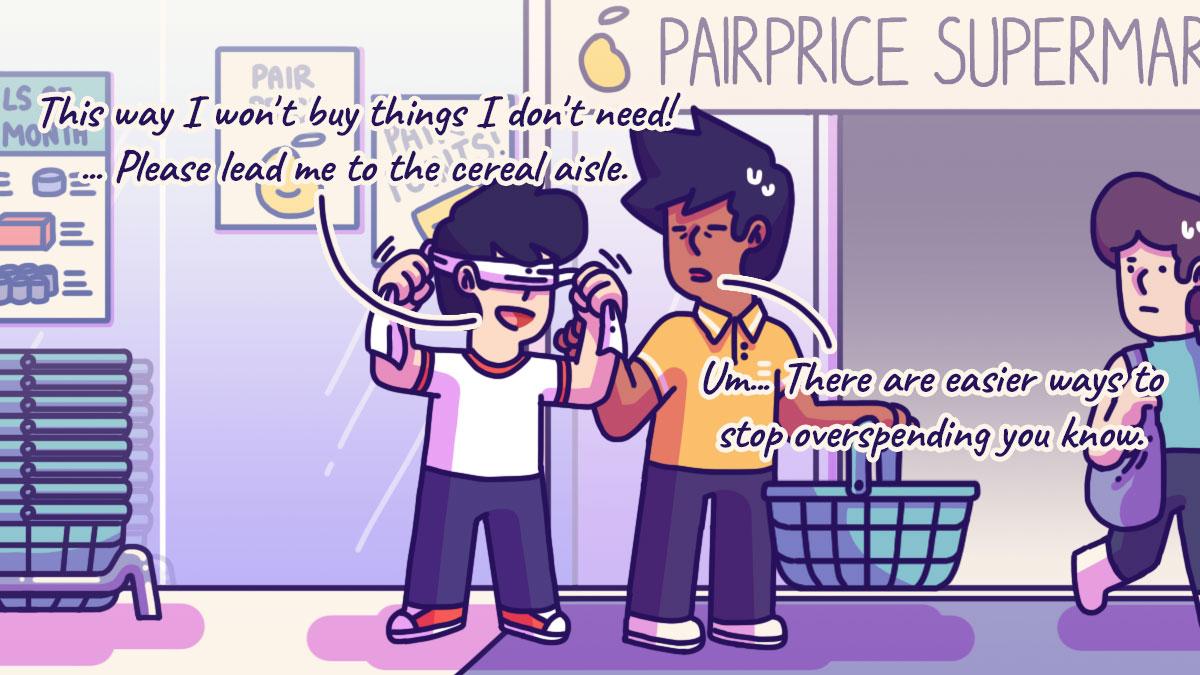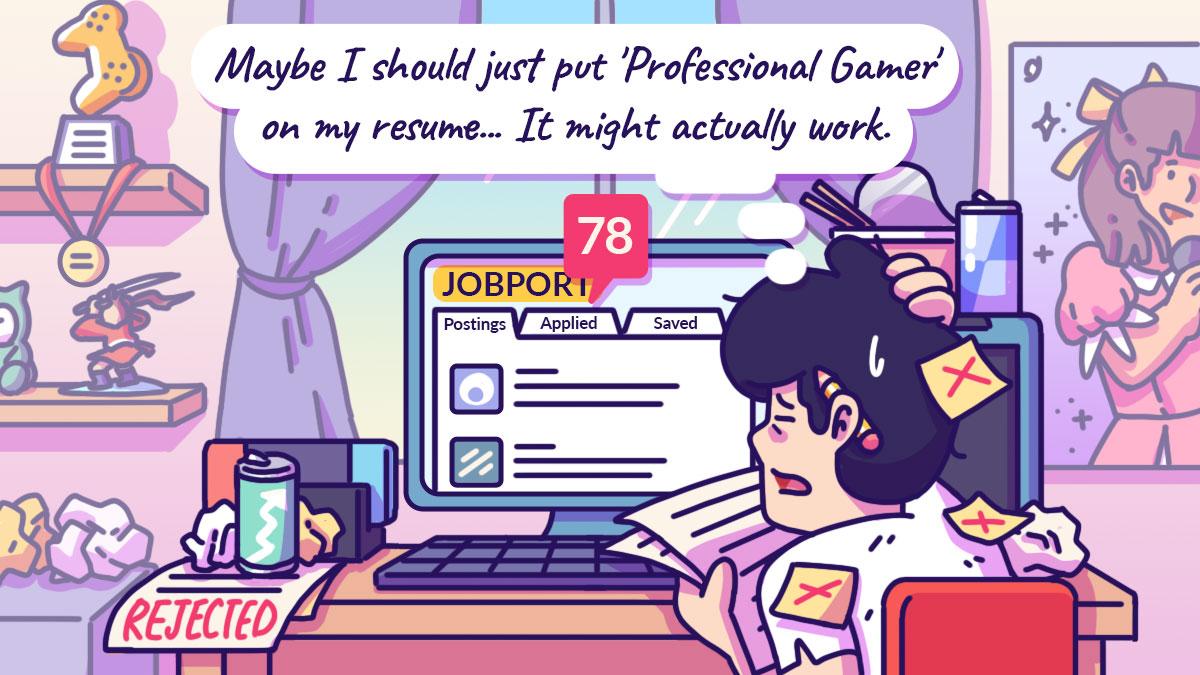When it comes to pay and career growth, working in an early startup can be like spending your days in a house of horrors. Here are the things startup folk might not tell you upfront about that life.
1. You don’t always get paid on time.
Remember the feeling of looking forward to payday every month? You have it circled on your desk calendar, and you budget every cent to last the entire month just because. Payday is serious business. [caption id="attachment_5916" align="aligncenter" width="234"] This is a wallet-sensitive, time-sensitive issue, boss. Cough up.[/caption]
The thing about an early-stage startup is that you might not get paid on time. A colleague recounted his experience in a startup where his salary was delayed for a month. That’s a whole 30 days without money in the bank.
Just because his boss was too busy.
This is because usually in an early-stage startup, a boss wears many hats. He doubles-up as CEO, salesman, HR manager and sometimes finance and marketing.
So some bosses might sometimes be bogged down and forget the small things – like your salary.
This is a wallet-sensitive, time-sensitive issue, boss. Cough up.[/caption]
The thing about an early-stage startup is that you might not get paid on time. A colleague recounted his experience in a startup where his salary was delayed for a month. That’s a whole 30 days without money in the bank.
Just because his boss was too busy.
This is because usually in an early-stage startup, a boss wears many hats. He doubles-up as CEO, salesman, HR manager and sometimes finance and marketing.
So some bosses might sometimes be bogged down and forget the small things – like your salary.
Even Worse
This might seem impossible – but sometimes, you might not get paid at all. The thing with early-stage startups is that the company, is essentially, still a proof-of-concept. Many a time, it might have no paying customers yet, and is surviving off investor funds that your founder managed to raise. These startups are (usually) on the cutting-edge of tech, or aiming to do things in a new way and bring innovation to a traditional industry. They might potentially be the next Google or Facebook (AKA big bucks). However, it takes time before customers accept a startup’s new and outlandish offerings. It also takes time for a startup to realize its offerings are of no value. And if nobody is interested in what a startup is offering, there won’t be money in the company’s bank account. Then you sure as heck aren’t getting paid.2. The job scope on your written contract is only a part of what you have to do at work. For real.
Sure, things in black and white are usually legit. But if you join an early startup in the role of designer, you might find yourself wrangling IT problems or taking on a customer service role answering people on Facebook Messenger. Suddenly, Brenda is asking you if you know how to “code, just a little bit.” Yikes.
When these ancillary roles takes you away from your original job scope, it removes you from developing essential skills in the career you seek to forge.
And when you divvy up precious work hours between your actual job and the additional one(s) you pick up along the way, your future rice bowl might be at risk.
This is because your resume is going to be all over the place. That’s bad for employability, because if you ever call it quits with #startuplife, MNC employers might not know how to fit you in to a role within their company.
Imagine having to start at a low-level executive position again. Imagine not being able to make the career leap you’ve always wanted.
But if you join an early startup in the role of designer, you might find yourself wrangling IT problems or taking on a customer service role answering people on Facebook Messenger. Suddenly, Brenda is asking you if you know how to “code, just a little bit.” Yikes.
When these ancillary roles takes you away from your original job scope, it removes you from developing essential skills in the career you seek to forge.
And when you divvy up precious work hours between your actual job and the additional one(s) you pick up along the way, your future rice bowl might be at risk.
This is because your resume is going to be all over the place. That’s bad for employability, because if you ever call it quits with #startuplife, MNC employers might not know how to fit you in to a role within their company.
Imagine having to start at a low-level executive position again. Imagine not being able to make the career leap you’ve always wanted.3. Most of the time, you’re on your own.
Yay! Freedom! Independence! My parents could never… Startups usually provide you much autonomy in your job. Want to try an innovative marketing campaign? ”Go for it,” your boss says. But that freedom might come at a price. [caption id="attachment_5918" align="aligncenter" width="288"] New game plan this quarter: let’s do a flashmob to market our drone tech.[/caption]
Your boss might actually not have a single clue how to run certain aspects of the business, that’s why he’s saying yes to your stupid ideas.
He or she is bootstrappin’ and saving money (as most early startups often are), that’s why he hires you, a fresh-faced graduate, or rookie to tackle a more senior role than you are really qualified for.
So ‘mentorship’ might never come – after all, your boss hired YOU to do this role. If you’re a total newbie to the workforce, you might never know if what you’re doing is wrong or right.
This can be exciting for those who can step up to the challenge, to self-study, to learn the ropes to excel in the position, allowing themselves to level up fast.
If you’re not that type, and all you want is a paycheck before going home. Then the startup life isn’t for you. It makes it hard for you to work your way up the ladder if you so decide to jump-ship.
New game plan this quarter: let’s do a flashmob to market our drone tech.[/caption]
Your boss might actually not have a single clue how to run certain aspects of the business, that’s why he’s saying yes to your stupid ideas.
He or she is bootstrappin’ and saving money (as most early startups often are), that’s why he hires you, a fresh-faced graduate, or rookie to tackle a more senior role than you are really qualified for.
So ‘mentorship’ might never come – after all, your boss hired YOU to do this role. If you’re a total newbie to the workforce, you might never know if what you’re doing is wrong or right.
This can be exciting for those who can step up to the challenge, to self-study, to learn the ropes to excel in the position, allowing themselves to level up fast.
If you’re not that type, and all you want is a paycheck before going home. Then the startup life isn’t for you. It makes it hard for you to work your way up the ladder if you so decide to jump-ship.4. Sometimes, promises just don’t come through.
Part of what makes early startups so exciting is the thought that you might be able to gain huge perks for pitching in at the starting line. This includes a future senior position in the company or even the chance to own some stocks and shares after going public. Early startups use these promises to entice the best talent to join them instead of offering Google-level salaries, because they just don’t have money to pay well yet. But consider this. Shares ain’t worth jack if the company doesn’t get acquired or listed. Startups can chug along forever in limbo, with a somewhat stable stream of income, but never going big like Facebook or Google. [caption id="attachment_5919" align="aligncenter" width="500"] Not what you wanna hear on a Friday morning.[/caption]
Also, nine out of ten startups fail, and if that happens, that share certificate you have? It’ll be worth less than toilet paper.
Not what you wanna hear on a Friday morning.[/caption]
Also, nine out of ten startups fail, and if that happens, that share certificate you have? It’ll be worth less than toilet paper.
Financial tips to consider during an interview, before joining a early-stage startup
- Ask about the runway of a startup before joining.
- If shares are offered, ask about the vesting period.
- If you don’t plan to stick around longer than the vesting period negotiate for a no-stock package in exchange for a higher salary











